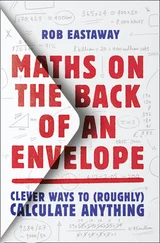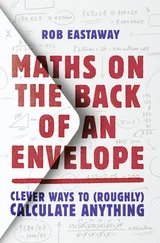Yes, he admits it, why not why not, why not admit it, he has resigned himself to being content with success. He works hard, as an engineer, and has become indispensable there. He is frugal in what he spends, does not have any illusions, regrets the few he ever had, only gets up to the usual domestic tricks, has no great problems, as the needs of survival dictate. It is a steamy evening. The city is being burned, at the bottom of hell’s cauldron. The two former classmates speak about other former classmates. So-and-so is rolling in it, can you imagine? So-and-so’s a famous medical man. Yes, that’s the one I mean. So-and-so committed suicide, for no real reason. Then on to former teachers at the old school.
“But what about Tolea? Have you heard anything of him?”
It is not clear who asked the question, but the answer comes from the engineer.
“Ah, it’s a nasty business. Maybe you heard. If it’s really true—”
“If it is—” —in other words, he wasn’t just a loony but also—
“Well, that’s what things are like. Yes, the Law, the State require people to act decently. The Law is conservative: it protects us from a lot of things. Of course, it also allows some ambiguity. Yes, we do have a sense of decency here! People must be kept on a leash. If you let go, then heaven help them! Look what’s happening over on the other side, at our pompous rival, Freedom, Incorporated. Here we’ve got decency — we should never forget that. There’s even enough ambiguity allowed, if you know how to discover it, to win it, to ally yourself with it.
“You see, I met him a year ago. Also like this, by accident in the street. I didn’t expect the loony professor to recognize me. But, well, he knew almost everything about me: he said he respected the clearsighted way in which I’d got on in my career, et cetera, et cetera. We exchanged telephone numbers — you know, symbolically, like people do. And then, would you believe it: he rang me! Not just once. He kept doing it all the time. Incredible! He’s a changed man: sad, weary, lonely, sometimes frightened. Exaggeratedly polite, morbidly so. Mister this and Mister that: I was completely taken aback. I’ve got used to it by now, as if it’s a poor abandoned relative who’s calling me. He just talks and talks: he’s lost all discretion, all pride. He doesn’t shrink from complaining, he of all people. You know how puffed up he used to be. But now it’s all about how poor he is, and old, and he doesn’t have anyone, and he’s a failure, even the most stupid wretches have fixed something up for themselves. You won’t believe it, but sometimes he talks to me about his mother. Without any scruples. To me, a stranger! He curses, cries, jokes, moans and groans, confesses all sorts of things, repents like a little kid. Can you imagine a confessional tone like that in arrogant old Tolea?”
Yes, the confessional question came from the elusive engineer, the arrogant fibber. Traces, fables, concoctions. The confused outline of the masquerade.
Tolea, as a substitute? That is precisely what it turned out to be, at every step. The landmark for a certain place, its inside-out emblem, when truth and fakery switch around and assist each other, both heads and tails, faces and masks with their clownish reverse side, a laughing wound.
Look, the madman’s ghost has appeared just one step away, back after so many years in the little town of his adolescence.
The train was late; the heavy reddish contours of the old granite station could only just be made out in the languor of twilight. Night was rapidly falling, as in the past, over the silent hills. The ghost put his suitcase down in the cinder yard and raised his eyes: yes, he had reached his destination. He recognized the brick façade, the metal pillars, the dirty glass roof.
Now he reached the bus stop. Fur hats, shopping bags, kerchiefs, bundles. Waiting, waiting, multiplying all the time, they huddled together around the closed kiosk where cigarettes and biscuits were sometimes sold.
After nearly an hour of waiting, the old girl finally appeared with glowing headlights. She was snorting, staggering, rattling her screws; the doors flapped about, and the wheels sniffed in their worn-out covers.
The pensioner could hardly pull along such a mass of people. She moved with difficulty down winding, slushy streets and stopped at the level crossing. The Old Lady passed the bridge and began to climb, exhausted, the poplar-lined highway. Here, at the bend just inside town, he always felt he was back home.
In his early student years and at every homecoming after that, the senile, dismembered vehicle, reeling between stately poplars, eventually reached that point in the bend where the gradient suddenly increased, signaling the town, the rediscovery. Always the same place and always different ages and the same age. Immediately after the bend there was for many years a halfway stop. The bus would brake, gasping, in front of a pretty shelter with panels of green glass. He could see two seats and heaps of rags, paper, and wire. A few passengers got off, others got on; it remained as crowded as ever and the old crock could not start again. Suddenly the irritation of a passenger clinging to the steps: “What are you doing, you fool, can’t you see I’m getting on?” The fool was a stocky man, with a round pale face, in a short coat made of rough gray material. Opening his eyes wide in astonishment, he did not answer but moved to one side by the door to make room for the growler. The bodies pressed harder against each other, so that the brawler could climb aboard. “Stay like that, you idiots, don’t move.” The quarrel was about to start, as usual — curses and fists. But no, nothing happened: they were all too tired. But the vicious creature did not give up: he went on with his grumbling. Aggressive, arrogant, he could do with a slap or two in the face. A foot on the steps, an open overcoat, a huge suitcase in each hand, spectacular, thick, genuine-leather suitcases with dozens of colored labels, as if the tourist was coming from Monte Carlo. It was probably that which intimidated everybody into remaining silent, so they did not answer the insults. His smart coat, made of soft camel’s-hair material, the color of camels. Around the dromedary’s neck was fluttering a large Dior scarf, in red green and sandy check. The upstart kept spitting out abuse — at the driver, at fellow passengers, at the dirt, the smelliness and squalor, and on and on without end.
And then the phantom raised the bald head and clean-shaven face of a Roman consul. He didn’t see anyone: he had no time for trifles. Sweating and furious, he had no time for trifles.
Why has he shown up just here? Where do the showy cases and jet-set clothes come from? Jerky rattletrap, rattle rattle trap trap, rattling along narrow muddy winding streets. The populace is asleep, defeated, deaf-mute. Only Her Ladyship is whistling and shouting and turning somersaults. Between his suitcases full of conjuring tricks, hanging from the trapeze bar, whirling his Parisian scarf, setting the air alight with his grumpiness and his juggling. He shakes his hands and head about: the camel’s mantle flutters in the arena; the fakir does not have enough space and air and applause. He towers over the planet — he’s alone as always. Ever alone, alone in the world.
COMRADE OREST, You are right: Ortansa Teodosiu can be approached. Lively, prying, good at wangling things, she gets into every little corner, as you say. I would suggest the code name Masterkey. The fact that she lives here in the block is a big advantage. We are on friendly terms with each other, not like between manager and tenant. It would have been harder with her husband, an arrogant little upstart really full of himself. They both make illegal profits, of course, but Masterkey hasn’t lost a certain modesty and decency from her original condition in society. She’s clever, charitable, and crafty, I know. She’s got brains and a heart, everything in fact, and she likes having them. You can see it from the way she talks about the doctor. She knows his qualities, but also his little dodges. She’s attached to him in a way, but she’s well aware of his darker side, I know. Ortansa represents our national characteristics: that is, the close, inseparable collaboration of good and evil, of what people call good and evil. It’s an extraordinary, highly respected quality of our place in the world, our precious treasure.
Читать дальше












